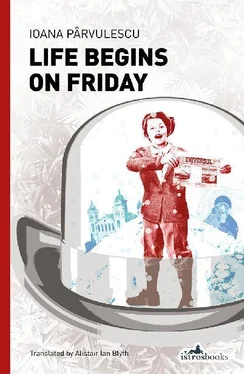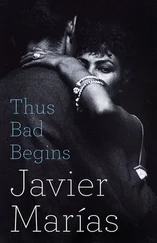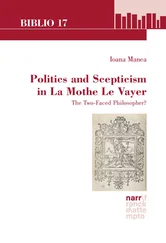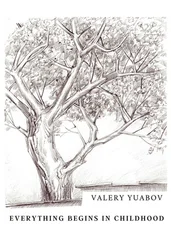‘Anica,’ the boy promptly answered.
‘And what is your name?’
‘Anica,’ repeated the boy.
Indeed, the way he looked, with his curls and white cheeks, he might very well have passed for his sister. Marioara sent them away with their nurse, since anyway they had finished eating, and she wanted to talk about the preparations for the New Year party.
The three siblings had not sat at breakfast alone together since they were children, when their parents went off on long voyages abroad and left them in the care of their governess. It was obvious that blood was thicker than water, because Mișu and Alexandru and Marioara were cheerful, although they had no great reason to be. Mișu complained that he had only another four days at home and that he had not done any studying during the holidays, apart from some practical work on Mr Dan Crețu’s shoulder, for which his fall on the ice had been welcome. Marioara wondered in a slightly theatrical voice, although what she said came from the heart, whether she would ever find a man who would accept her with three children, two of whom, the twins, were very naughty and ‘put every suitor to flight.’ And Alexandru told them that he was worried and in love.
‘No big news there,’ said Marioara and Mișu almost in unison.
The sister poured the coffee in the Limoges service, whose coffee pot, sugar bowl and cups had their handles twisted towards each other, as if they were chatting together. The coffee pot and sugar bowl even looked as if they were in an aparté , gossiping about some cup, probably.
‘With whom?’ asked Marioara, without any great curiosity.
She was tired and always befriended the ladies that Alexandru introduced to her, and subsequently, when he left them, she consoled them or avoided them. Better she did not know.
Rather than answering the question, Alexandru frowned and said: ‘This time is it different?’
‘No big news there,’ laughed his elder siblings.
‘Now it is I whom am afraid. I think that I have lost her already. Iulia Margulis.’
Marioara knit her brows, the name sounded familiar, but not in a good way, and then she remembered a small and ordinary looking creature, dressed rather inexpensively, who had attended a party thrown by Mișu. Indeed, her brother had paid her great attention, which had surprised her; at parties he usually paid attention to the most dazzling and elegant lady.
‘Yes, I remember her, she is a —’ Marioara groped for the right word ‘— she is a delicate creature.’
Alexandru looked at the floor and, in surprise, his sister saw him blush.
‘It is very hard to talk to people about somebody you care for greatly,’ he said. ‘To me it is very hard because you expect people to start making observations. One says she is thus, another says she is the opposite, one says she is intelligent, another says she is stupid, that she has curly hair, that she is gauche or that she speaks through her nose, and slowly but surely people extinguish her light. Once, Iancu, who as you know is an expert in rather scabrous matters, in order to ‘rescue’ me from a married woman, without whom life seemed to me to have no zest, described her as follows, between drinks and between two… two pigs like us, he described her piece by piece: her lips are like a trout’s, her nose has a hump, her eyes are like pondweed, her oval face is too small and her circular rump too large, her…’
‘I did not teach you to speak like that,’ interrupted Mișu, stiffly, and Marioara added: ‘And nor is it any of our concern! Shame on you and your mind! Iancu is an ass, as you say. Although he does have charm,’ she could not help but add.
‘I said he was a pig. But he did me a great service in rescuing me from her! I would not care for anybody to do me such a service in regard to Iulia. If I could, I would take her away from the world and keep her in a safe place, where nobody could find her.’
‘Have you ever asked her if she wants that? In any event, kidnappings are no longer the mode. You were born too late.’
‘I know.’
Tuesday, 30 December: Time Stands Still
I had not been expecting this, not in the middle of winter. There was a huge mosquito in the room, the father of all mosquitos — I do believe — the forerunner, the founder of the nation. In the past I would have killed it without stopping to think about it, but now — it is obvious I have aged a year — I left it in peace. Anyway, it looks tired, like a traveller who wishes only to lay his head on a clean pillow and rest his legs. Maybe it is making a New Year voyage. I will provide it with all the comfort and ease it desires. It is evening, it is pleasant here in my room, it smells of nutmeg and cinnamon from the cakes on the table, and everything is colourful, as I wanted it to be: the wallpaper and curtains are soft yellow, with a hint of russet, the flowery carpet is also yellow, between the green garlands, the armchair and couch are olive green, and only the bedspread does not match, I shall have to change it, when I have the money. It is as if there were no outside , but only an inside .
Today everything was turned upside down by a piece of news that fell like a thunderbolt: poor Safta read in Universul (she collects them after we read them and uses them for wiping the windowpanes) that one of her brothers-in-law — her family is from Boheni, in Oltenia — was buried alive, under some rocks. I would ban news like that, if I had the power! And everything was described in gory detail, how it happened, how the unfortunate man went with a pick to the quarry, to fetch materials to build a school in Cetatea. I refuse to write any more. The family’s grief is also described at length. What must Safta have felt when she read it! Of course, Papa straight away gave her money for the journey, because tomorrow, on New Year’s Eve, she must go there, and he gave her a sedative. She was in a dreadful state, choking on her tears, I thought she would die. She fainted twice. Nobody should ever have to go through such an ordeal! Even when you hear about such things happening to a complete stranger, you feel the blow. Why should such suffering exist in the world? It makes my head reel when I try to understand it, and today I even had to lie down, I felt unwell. The ironic thing is that a few days ago, in Universul , I read an article with almost the same title, but a comical one: Buried in Dollars . It was about some functionaries at a mint in Philadelphia, who, they said in the paper, ‘almost came a cropper.’ They had been sent to check a money warehouse, to see whether it still held two million dollars. I cannot even imagine so much money; it is like an oriental fairy tale. And when they lifted up the sacks, the cloth split and ‘it began raining dollars’ on the functionaries’ feet. In a short while, said the newspaper, they were buried up to the waist in silver coins. The fire brigade arrived and saved them from certain death. And the moral: ‘money is very nice,’ but not if you drown in it! I liked that story very much. Lovers of money should read it. Papa said the love of money, argyrophilia , is a disease and gave the former Metropolitan Ghenadie as an example. Papa certainly does not have the disease, but rather the opposite one. What might one call it? Argyrophobia — a fear of money? And by the way, I read the winning lottery numbers in the newspaper: my No. 12 came up, and Vasilica’s No. 21, and so neither of us won. But it seems of no importance now.
Last night, for the first time, I forgot to go to Jacques’ room to say good night, as I have been doing ever since he was born, when I was ten years old: I used to go barefoot to his cot and Papa would not allow me to touch him. I am afraid I am becoming selfish: this is a defect that I did not have before.
Читать дальше












